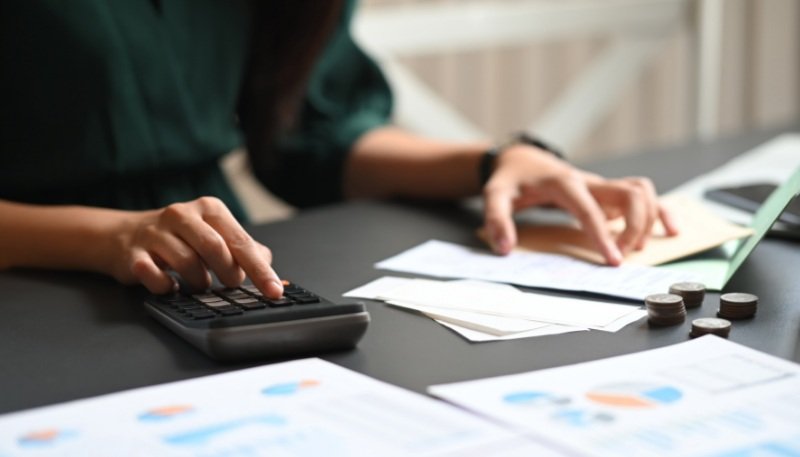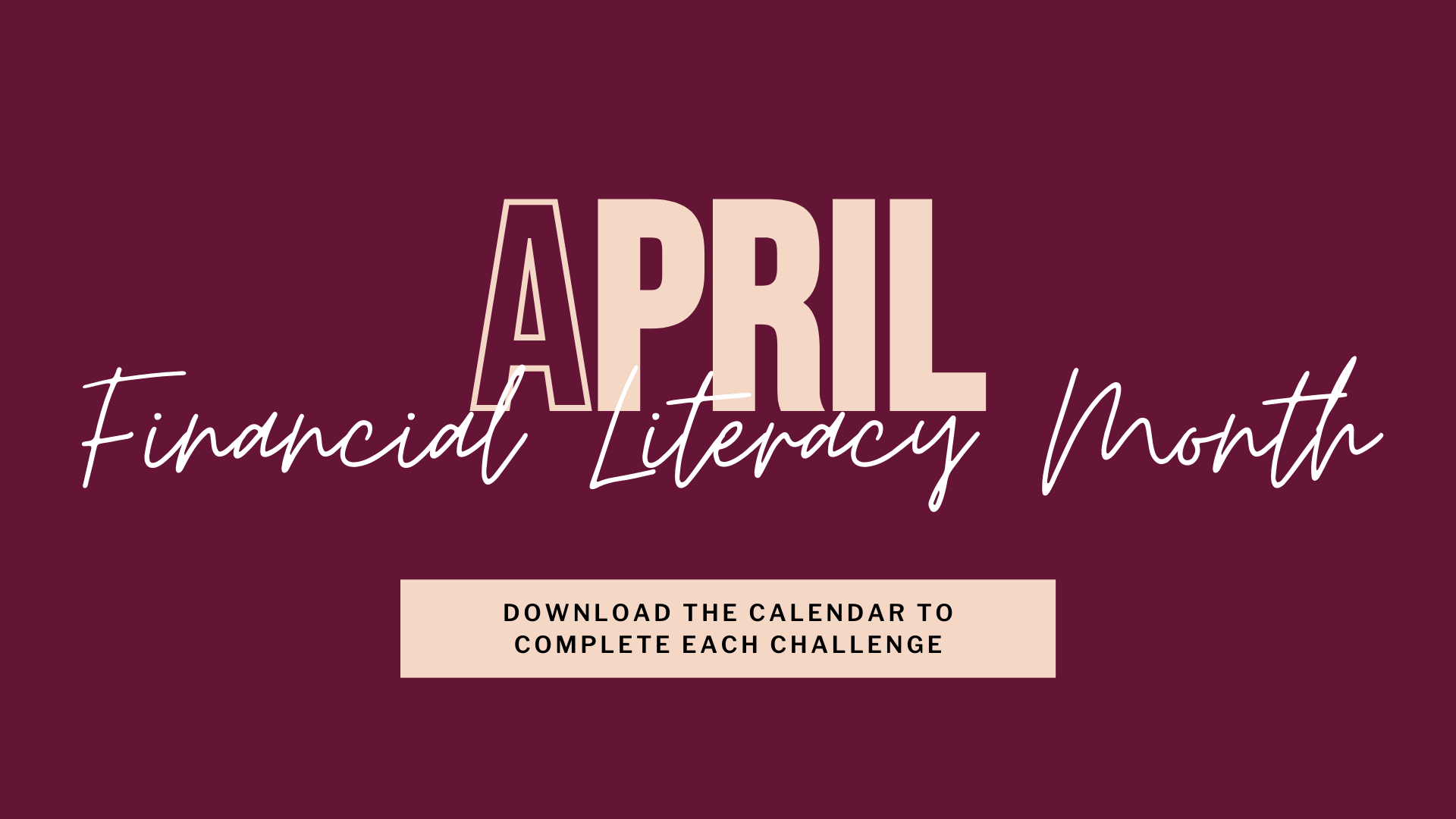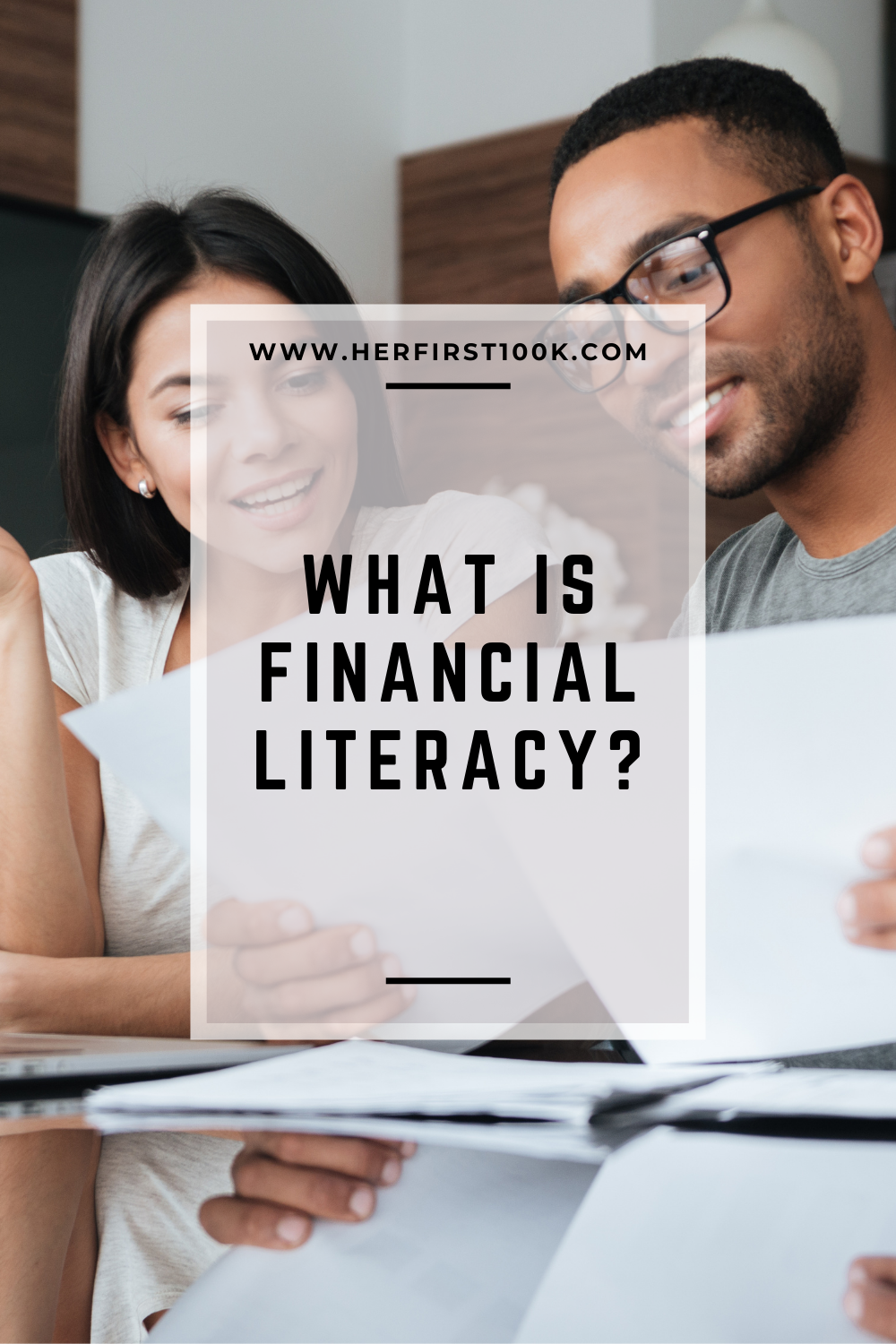The following article may contain affiliate links or sponsored content. This doesn’t cost you anything, and shopping or using our affiliate partners is a way to support our mission. I will never work with a brand or showcase a product that I don’t personally use or believe in.
What is Financial Literacy?
In 2020, everything changed for Her First $100K™. Sitting on her couch in her studio apartment, HFK founder Tori watched as hundreds of thousands of notifications lit up her phone. One of our TikTok videos had gone viral, and our online audience was skyrocketing.
Since that day, we have continued to produce financial education videos for women and share them on TikTok, ultimately attracting an audience of over 2 million people! And while we love that we have such a supportive and engaged community on TikTok, it is interesting to have such a large part of our business revolve around an app that is built on niche humor, inside jokes, and absolutely chaotic mashup audios.
Don’t get us wrong – we love using TikTok as a way to educate in fun ways and continuously shit on Dave Ramsey’s archaic financial advice, but we are also aware that much of today’s TikTok humor is..well…pretty f*cking bleak.
Many Millennials and Gen-Z’s use humor as a way to cope; from jokes about mental health concerns to the world ending, sometimes all we can do is laugh to keep from spending an entire day listening to Olivia Rodrigo and crying.
But as a platform that wants to financially educate and inspire, we can’t help but notice that there is an increasing amount of content poking fun at not knowing how to do our own taxes, having a two-digit credit score, or being unable to stick to a budget due to impulse shopping. And we totally get where you are coming from.
Today’s society does not have systems and resources in place to provide the educational foundation we all need to be financially literate. Rather than being taught in a classroom how to create a budget spreadsheet, do our taxes, or utilize credit responsibly, we are expected to figure these financial basics out on our own with limited guidance and access to personal finance resources. Check out money tools for our favorite personal finance resources!
April is Financial Literacy Month, so today we are kicking off a month of content that will help improve your financial literacy and overall relationship with money, starting with discussing why financial literacy is important and giving you the starting points to embark on your own financial literacy journey!
What is Financial Literacy?
Financial literacy is the ability to understand and utilize certain personal finance resources, strategies, and fundamentals in order to build a healthy, lifelong relationship with money.
To be considered financially literate often implies a comprehension of household budgeting, managing and paying off debt, saving to reach financial goals, responsibly using credit, investing, and preparing for retirement.
Financial literacy is extremely important as it lays the foundation for wise money decisions that will have a long-term impact on your life. Additionally, women who consider themselves to be financially literate are more likely to break out of the financial confines of the patriarchy that were created to limit their opportunities.
Financial Literacy and Women
Unfortunately, due to a lack of financial education and accessibility to personal finance resources, the Financial Industry Regulatory Authority estimates that only 1 in 3 Americans would be considered financially literate with women being significantly less likely to be considered financially literate than men.
Financial illiteracy can have a dramatically damaging effect on individuals and communities as it can exacerbate a cycle of accumulating debt, falling behind on bills, being unable to stick to a budget sheet, and putting off saving for retirement. Additionally, people who lack financial literacy are also more likely to be victims of money fraud and endure a lifetime of chronic stress related to money which can result in long-term mental and physical concerns.
The U.S. Department of Education estimates that 3.8 million adult American women have a “below basic” level of financial literacy – meaning that this demographic can write, read, and comprehend financial resources at or below a third grade level. Another study found that more than 80% of women could not pass a retirement financial literacy quiz, while nearly twice as many of their male peers were able to pass.
This low level of financial literacy contributes to many of the systemic financial problems we see women facing today.
In addition to women already being at a financial disadvantage due to carrying the majority of student loan debt, the gender wage gap, and unpaid maternity leave, financially illiterate women have the challenge of navigating a life full of financial challenges without the knowledge – and in turn, the confidence – necessary to achieve financial wellness.
How to Improve Financial Literacy
HFK is spending the entire month of April dedicated to helping our audience improve their financial literacy so that they can live financially happier and healthier lives.
Take Yourself on a Date
When it comes to financial literacy, knowledge is power, and that begins with knowledge of your own finances. You cannot improve your financial future if you don’t first have a thorough understanding of your existing relationship with money.
One of our favorite money tools is the “Money Date.” This is a practice of financial self-care in which to cozy up with a glass of wine and a blanket and intimately go over your finances. Go over bank and credit card statements to figure out how much money you are bringing in each month and how much you are spending. Write down the sum of all of your debts as well as the monthly payments you make on them. Organization is key when it comes to personal finance. Consider our budget spreadsheet, “The Badass Budget” to help you own your finances!
Once you have laid out your income and expenses, it is time to set your financial goals and plans. We want to aim for goals that are realistic and plans that are sustainable so that we don’t set ourselves up for burnout. Start by creating a budget that includes your necessary monthly expenses while also allowing you to proactively save, prepare for retirement, and engage in activities that you love. Plug everything into a budget spreadsheet so that you can update it each month and track your progress.
The first time you take yourself on a Money Date may feel like – well – a first date: a little awkward and clumsy. But as you incorporate the Money Date into your monthly routine, you will not only gain a better understanding of your personal finances, but your confidence in your knowledge and capabilities will increase. Before you know it, you will be reaching financial milestones and looking forward to your monthly Money Date!
Feeling overwhelmed by all the information and technical jargon of personal finance? Not sure where to start with your Money Date? Worried about sticking to your financial plan? If so, you need to check out our best-selling book, “Financial Feminist: Overcome the Patriarchy’s Bullsh*t to Master Your Money and Build a Life You Love”.






